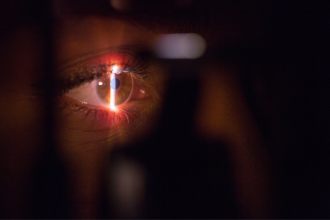Hearing loss doesn’t announce itself overnight. It creeps in slowly, subtly distorting conversations, dulling once-familiar sounds, and making the world feel slightly out of sync. Many people dismiss the early signs, chalking them up to distractions, background noise, or simple fatigue. But audiologists warn that these gradual changes should not be ignored.
“Hearing loss often goes unnoticed because it happens so gradually,” says Rosanna Chor, Director at Trusted Hearing, an independent audiologist in Doncaster, Melbourne. “People adapt without realising it—turning up the TV, asking others to repeat themselves more often, or avoiding noisy environments where conversations become too difficult to follow. But these are red flags that something isn’t right.”
Untreated hearing loss has far more serious consequences than missed words and muffled conversations. Impaired hearing has been linked to cognitive decline, social withdrawal, and even depression. The earlier it is detected, the better the outcomes, but it begs the question: when should one seek professional help? Experts claim these following five signs should never be overlooked.
First, and most commonly, one might have trouble hearing in noisy situations. It could be those conversations at a buzzing restaurant, a crowded office, or family gatherings. The background noise seems to smother any speech, and all voices sound the same. “We see this a lot in patients who come to our hearing clinic for a hearing test here in Melbourne,” says Chor. “They may say they can hear just fine when it’s quiet, but if they’re in a noisy cafe or at a dinner party, they can’t follow the conversation.”
Another early warning sign is common misunderstandings. If you find yourself mistaking words-hearing the wrong words-confusing similar sounds like “time” and “dime” or “cat” and “hat”—it may mean that certain frequencies are no longer as sharp as they once were. Relatives may note that you’re responding improperly to questions, or missing vital details, frustrating both parties.
Then there’s the issue of turning things up full volume all the time. If your television, phone, or music is significantly louder than what other people find comfortable, it may compensate for the gradual loss of hearing sensitivity. “Many people come in because a family member has told them their TV volume is out of control,” Chor says.
A fourth red flag is tinnitus, or ringing in the ears. This constant buzzing, hissing, or ringing can be an indication of early hearing damage. While ringing after a loud concert or a night out may not be a big deal, chronic tinnitus could be a sign of long-term hearing problems. “Tinnitus is often one of the first signs of hearing loss,” Chor says.
Lastly, hearing difficulties can also be caused by ear wax buildup. While hearing loss is usually blamed on age or noise exposure, sometimes the issue is as simple as ear wax buildup blocking the ear canal. “We get patients all the time who think they’re losing their hearing, but it turns out they just need ear cleaning,” Chor says. “Microsuction can make a world of difference in cases where ear wax is the issue.”
The good news is that hearing loss doesn’t have to be a silent struggle. Modern audiology has made significant advancements, from AI-powered hearing aids that adapt to different sound environments to comprehensive diagnostic tests that pinpoint even mild hearing loss early. But the key to effective treatment is early detection.
“If you suspect your hearing isn’t what it used to be, don’t wait,” Chor advises. “The sooner we assess the issue, the better the options for treatment. A simple hearing test can provide clarity and help preserve your hearing for years to come.”
Ignoring hearing issues doesn’t just affect communication—it impacts mental health, cognitive function, and overall well-being. Recognising the early warning signs can make all the difference in staying connected to the world around you. The next time you ask someone to repeat themselves or struggle to hear a friend in a noisy café, consider it more than just a momentary frustration—it could be the first sign of a hearing problem worth addressing.















